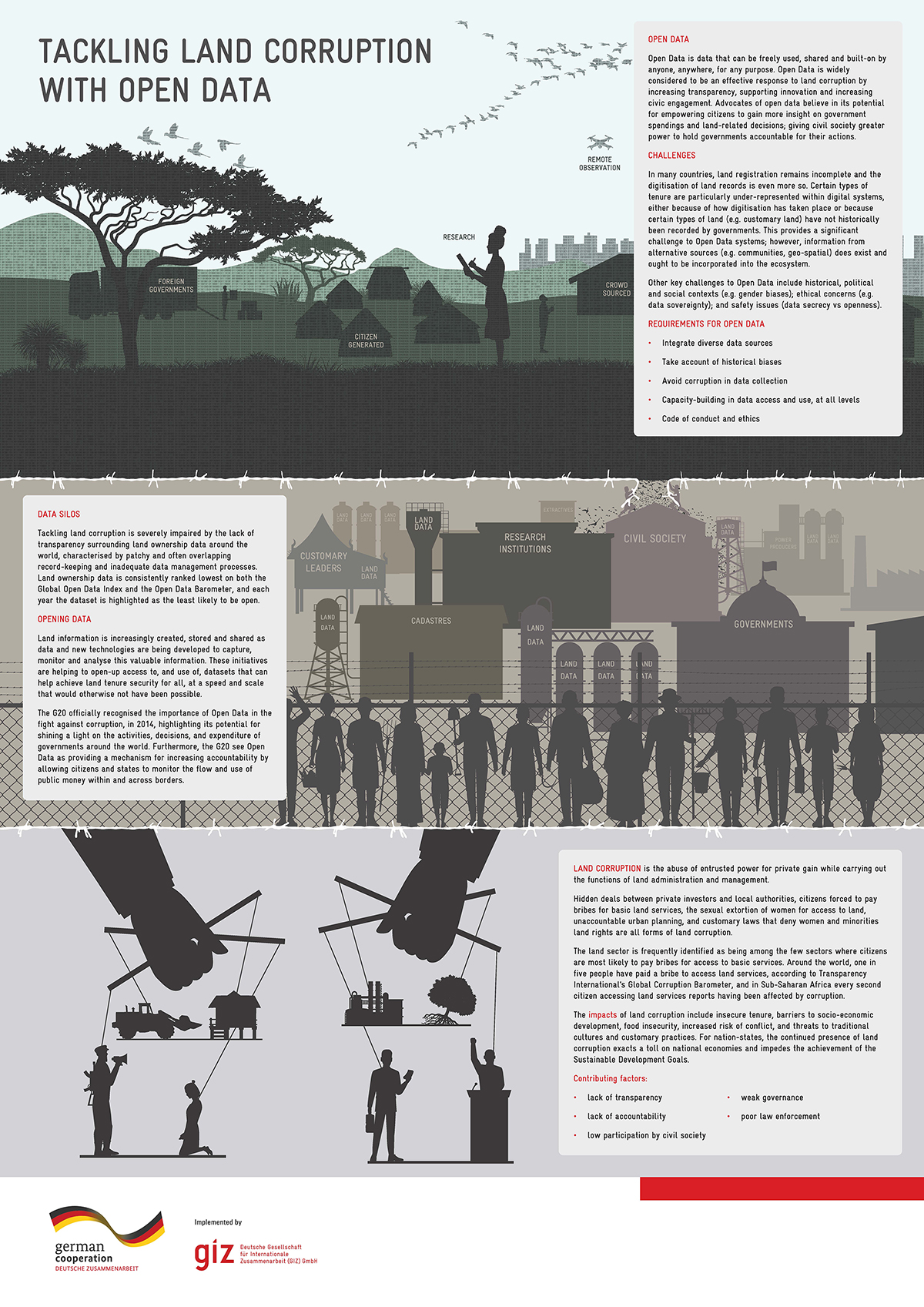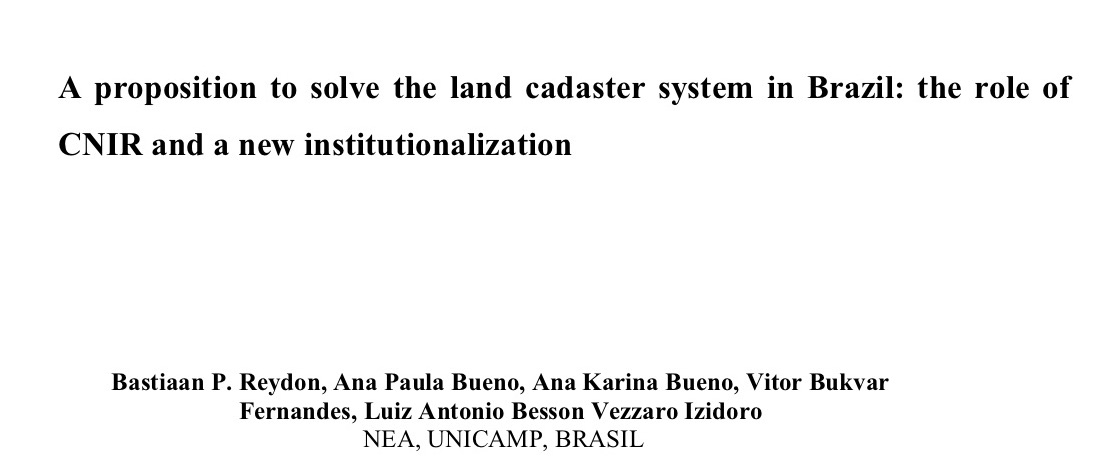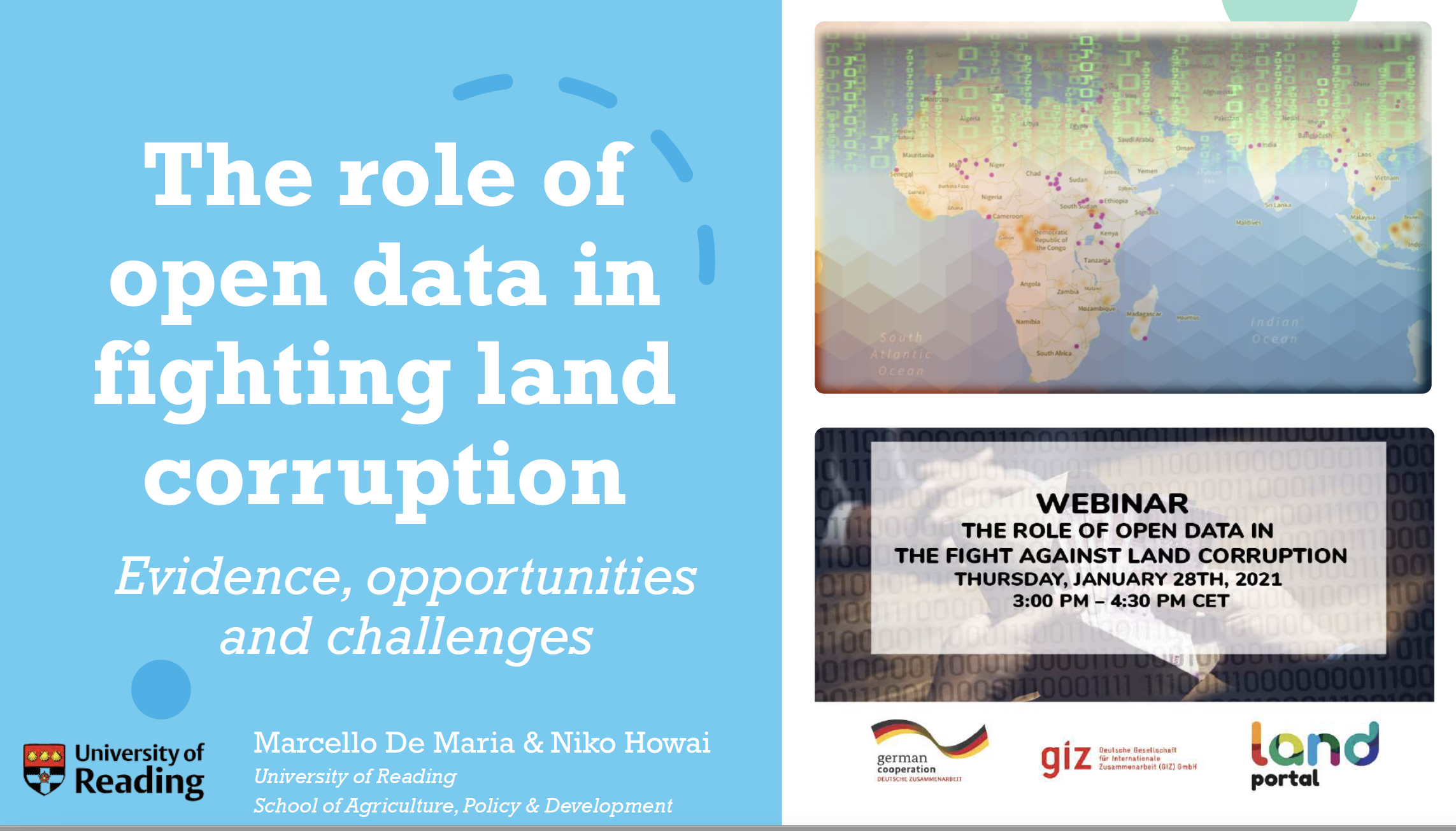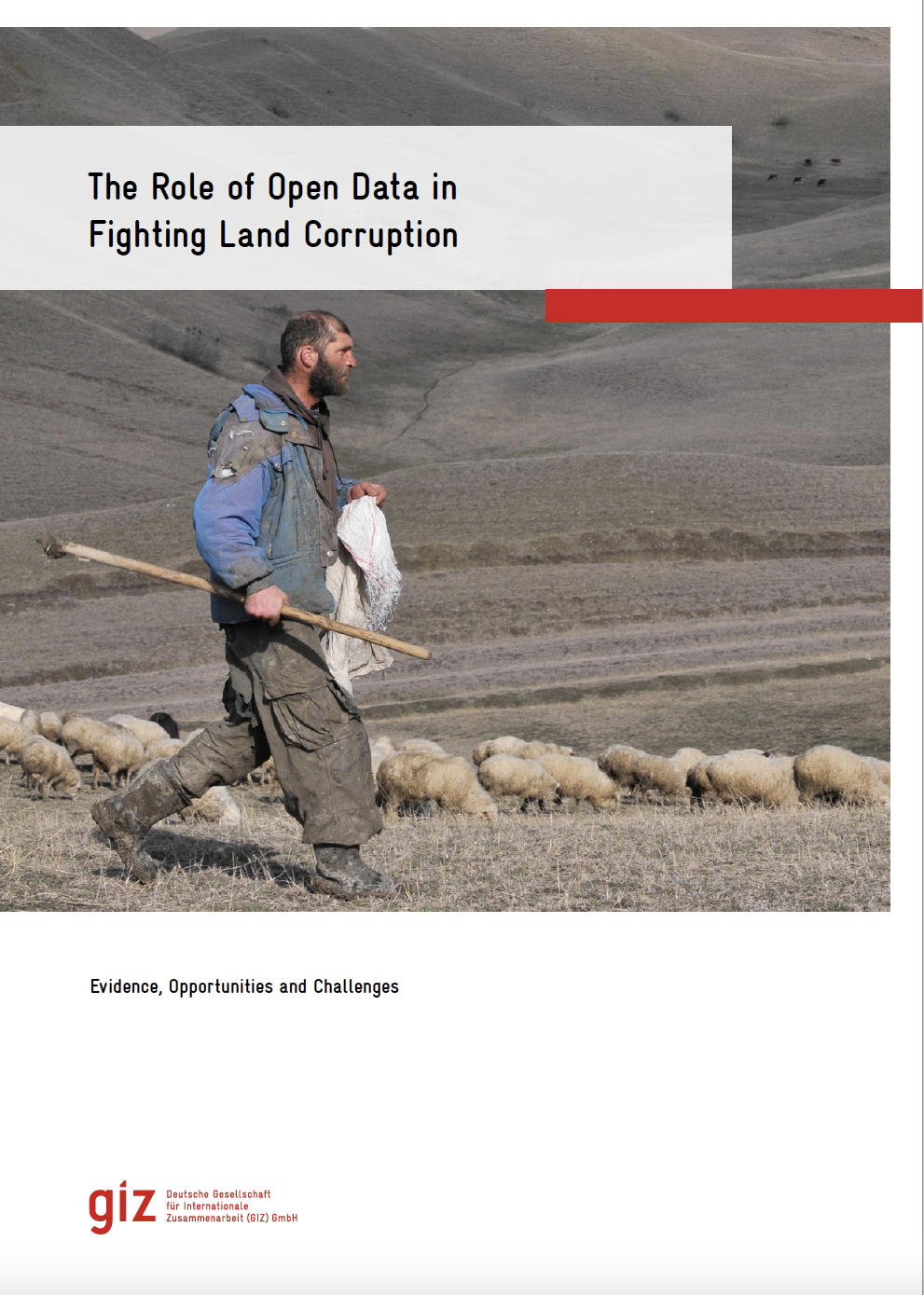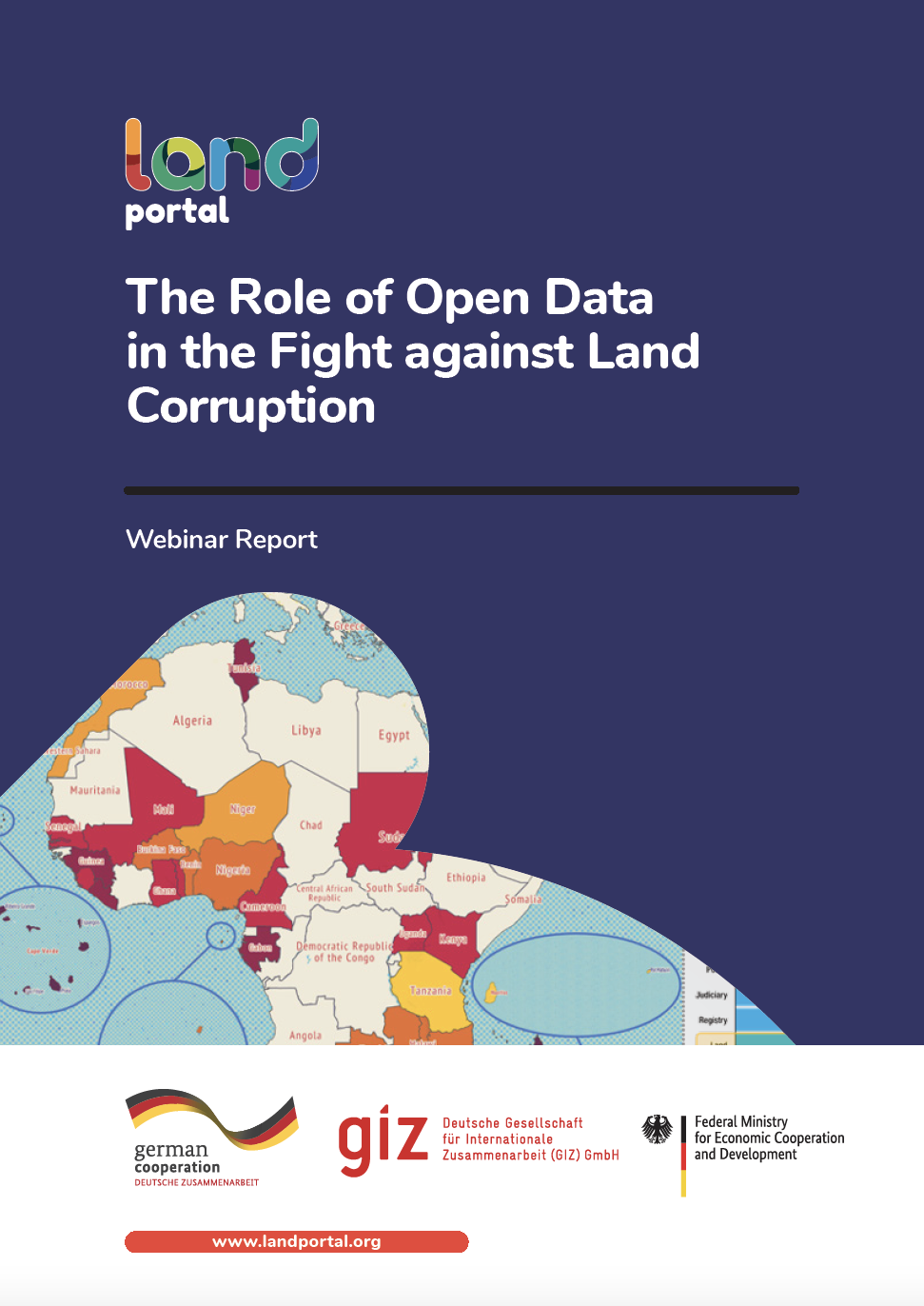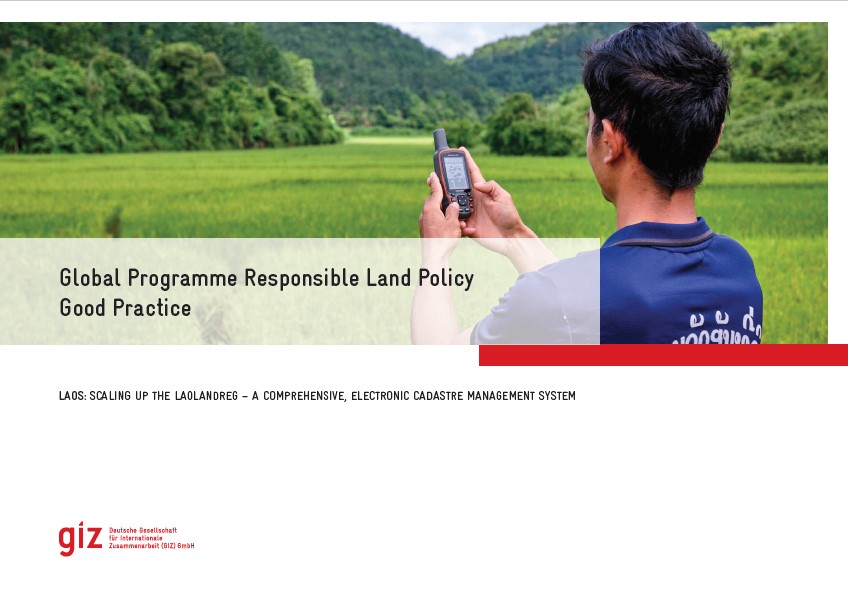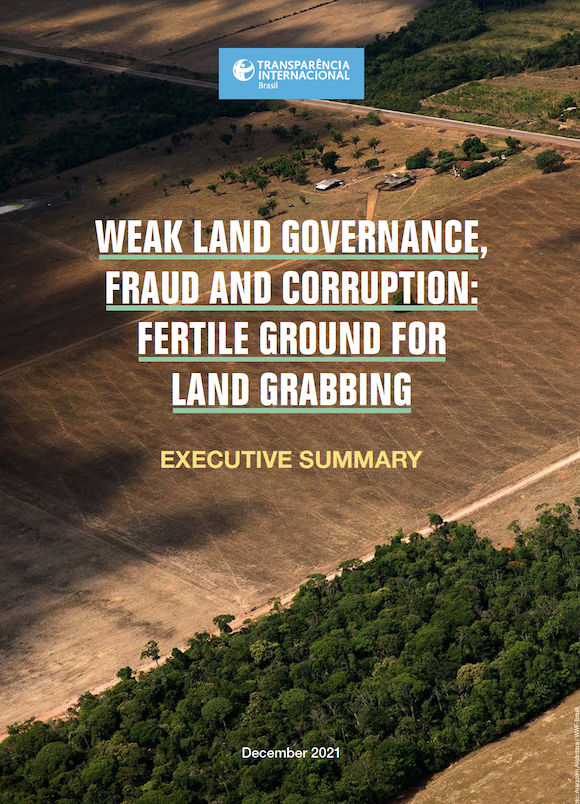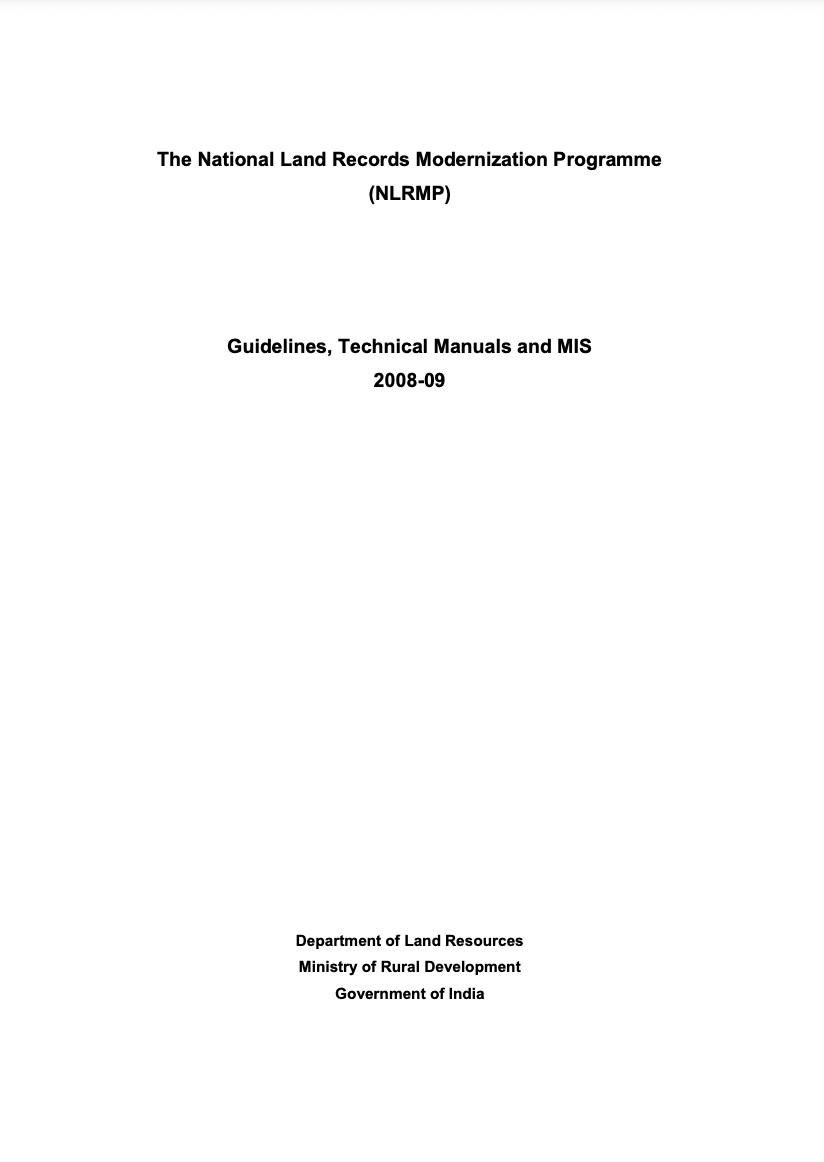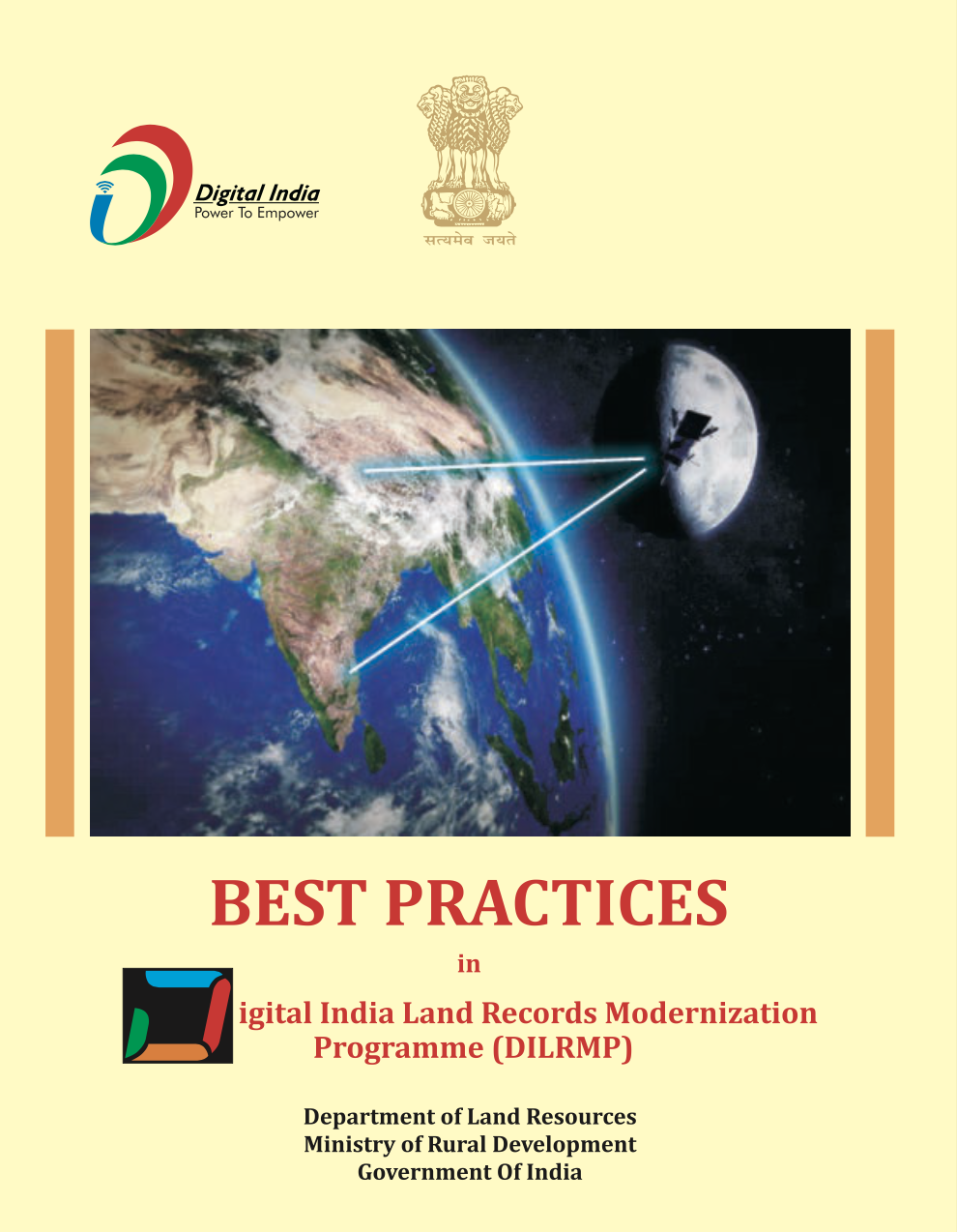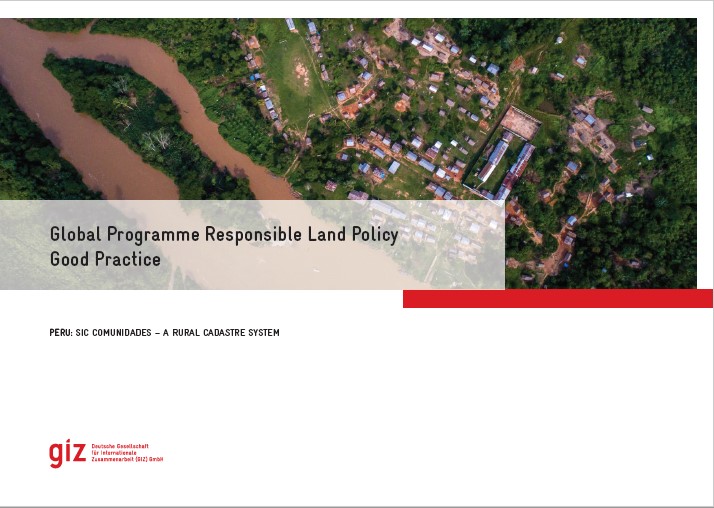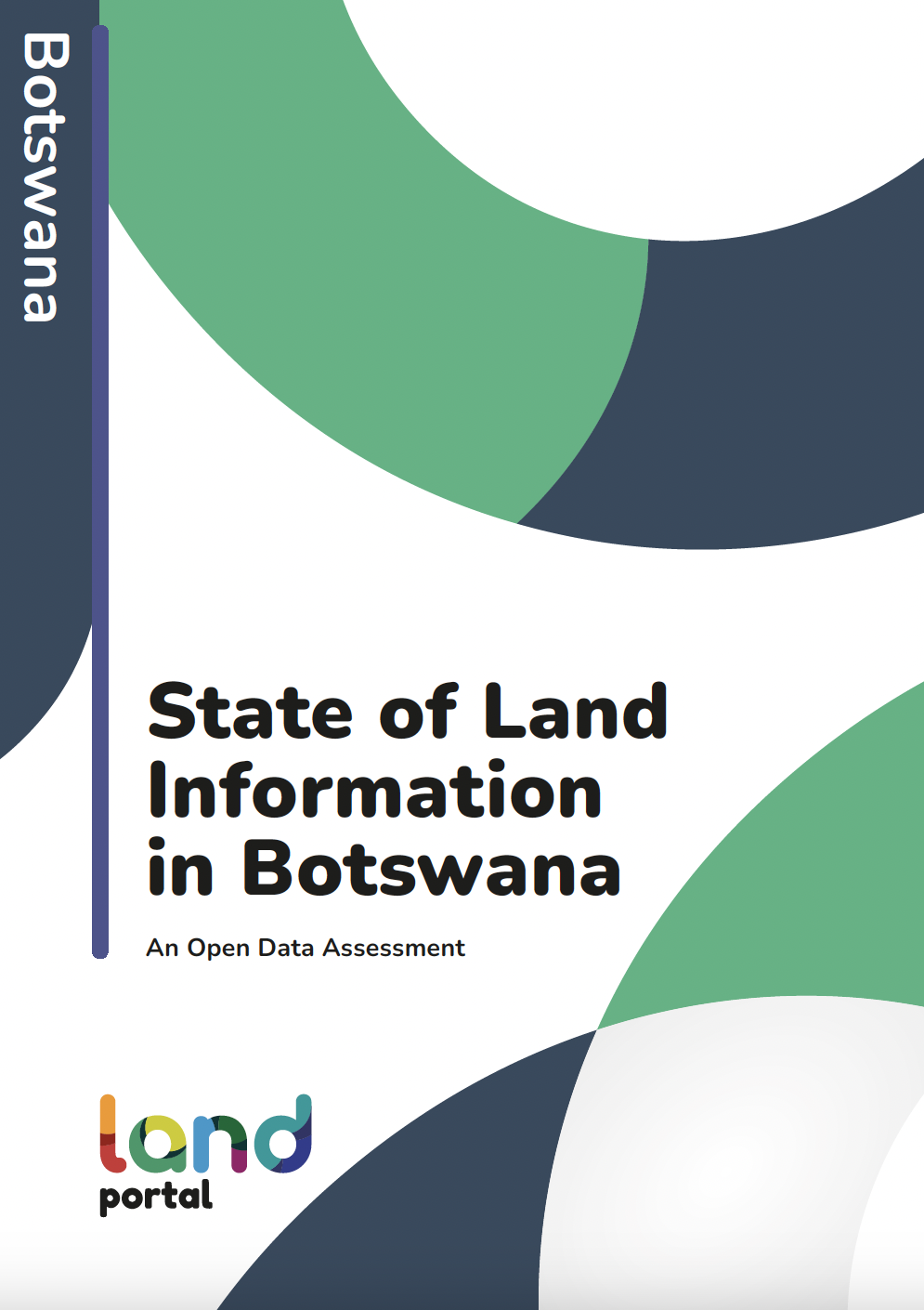Poster: Tackling Land Corruption with Open Data
Open Data is data that can be freely used, shared and built-on by anyone, anywhere, for any purpose. Open Data is widely considered to be an effective response to land corruption by increasing transparency, supporting innovation and increasing civic engagement. Advocates of open data believe in its potential for empowering citizens to gain more insight on government spendings and land-related decisions; giving civil society greater power to hold governments accountable for their actions.

